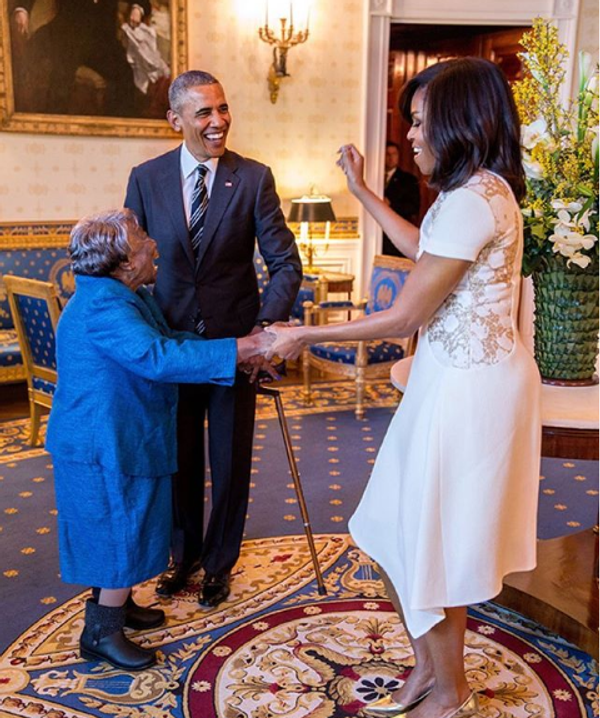As the future of America unfolds right before our eyes—with the rights of our transgender, black and immigrant peers under heavy scrutiny—it is vital that we take control of what we can with the power that is rightfully ours: to vote.
Although a wide variety of issues require heavy unpacking and reform for years of neglect, we must start where we can, and we must try every year. As of right now, it is our only option.
Despite where you're from, you may already know a little bit about the battle between Beto O'Rourke and Ted Cruz, and their race to win the Senate elections in the state of Texas. As of late, it's been at the forefront of the now polarized political debate between Democrats and Republicans.
As a voter and American, it's easy to find yourself identifying with a party rather than policy, and if you ever happen to question the mentality, question it hard. It is not every day that Texas is most definitely a swing state, and it is not every day that quite literally, every single vote matters.
Ultimately, what I am asking of every single one of you out there, as long as you're voting: If you're passionate about the party you're representing, why? Is it because you come from a family of Republicans? Is it because Barack Obama was a Democrat? Is it because you hate abortions, even if you will never have to have one yourself?
Are any of the reasons above enough to make an informed decision?
No, they are not.
But, the research you conduct on the subjects that are most concerning to you matter. Whether the running candidates represent every issue you believe in, or if you're deciding between the lesser of two evils, as long as your decision is the one you feel is right for you and your community, then you're doing the most you can.
Just keep in mind, what makes the difference is policy over party affiliation.
Amidst this mess of partisan antics and hate, the idea of identifying with a party has become so convoluted and absorbed that many forget where they're coming from, or even why. The debate across the U.S. lies in the hands of your decision to give your vote to a party or to a candidate. There is a difference.
It's been long overdue that we set aside what we think it means to be a Republican or a Democrat—and our useless life-long loyalties to each side—and break down the policies we identify with.
What makes our vote count is the ability to be informed, not whether we vote Democrat or Republican. An American voter is one who truly values the system and one's ability to influence it. To neglect the power of an informed decision for the sake of maintaining a party status is as un-American as it gets.
So let's break it down. Four of the more popular subjects to date, and ultimately what will determine the immediate future of ours and our peers.
IMMIGRATION:
Nothing is as black and white as it seems, especially immigration reform. The current climate for our immigrant communities, 'documented' or not, is a violent battle with thousands of children at stake. Your vote is going to make the change in real peoples lives; it is vital that we remember these things are not just debated topics, they are real issues with real consequences.
Who you vote for represents what you believe these children and their families are: Human or expendable.
Ted Cruz: Supports immigration reform, wants to keep families together, but does not want to grant citizenship, and supports the wall.
Beto O'Rourke: Wants to shut down detention centers, supports the DREAM Act, and wants to give a voice to affected communities.
LGBTQ/TRANS RIGHTS:
The gender someone identifies with, their sexual orientation, or wherever one might fall on the spectrum, has nothing to do with anyone else. If you vote to take away someone's ability to marry who they love—ask yourself—would you be willing to accept the same fate?
Isn't it only fair that if you decide to control someone else's right to marry, you should be held to the same standard? If not, then what does that mean for you? For those who do, you are voting against? Who you vote for determines the amount of control you believe a government should have, and whether you think certain civil rights are arguably up for debate.
Choose thoughtfully.
Ted Cruz: Known for anti-LGBTQ rhetoric and vocal about his opposition to granting the community the rights they deserve (ref: separation of state and church).
Beto O'Rourke: Known as a strong supporter with a history of advocacy and vocal about his support.
GUN CONTROL:
In a state where the right to be armed is viewed as a birthright, gun control is a conversation that needs to be expanded upon further. Texas, although one of the most armed states in the U.S., has shown repeatedly that gun control is not a top priority. It is our time to bring this conversation to the forefront and lead by example. Wherever you stand on this matter, it is important to remember: your right to bear arms is not more important than the lives of thousands.
Ted Cruz: Is endorsed by the NRA, has been loyally anti-gun control for years and is against universal background checks.
Beto O'Rourke: Disproves of using guns in educational facilities and is an active supporter of common sense gun laws.
WOMEN'S RIGHTS AND ABORTION:
Understanding what it means to be pro-choice is what may make or break your voting decision. You can be pro-life and still support a woman's decision to choose. It is best to try and understand that ones ability to take care of and make decisions for themselves should not be left at the hands of others.
Ted Cruz: Pro-Life. What it can mean for you.
Beto O'Rourke: Pro-Choice. What it can mean for you.
Ultimately, your vote is yours, but it will change the lives of everyone around you and beyond. Choose carefully.



















